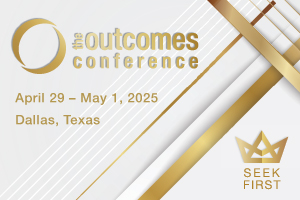
Active Leadership By Robert McFarland
 The Four Tenets of Active Leadership
The Four Tenets of Active Leadership
Leadership means influence: Leadership is the ability to influence others and affect their actions. Leadership also denotes being out in front and guiding and directing the actions of others simply by being a visible example. Leaders make an impact, whether they realize it or not, simply because they have a platform to change the behavior of their followers.
“Servant leadership,” popularized by Robert Greenleaf[i] in the 1970s, is a perspective aimed at leading through serving. The focus is on leading others by demonstrating genuine concern for their well-being. Jesus encapsulated this concept in the Gospel of Mark: “You know that those who are considered rulers of the Gentiles lord it over them, and their great ones exercise authority over them. But it shall not be so among you. But whoever would be great among you must be your servant, and whoever would be first among you must be slave of all” (Mark 10:42-44 ESV).
I use the term “Active Leadership” to describe leadership that is fully engaged and intentional. Active Leaders think through the impact they want to have—and the thinking they need to cultivate to achieve it—and they deliberately use every opportunity they have to influence their followers to that end. They take their responsibility as leaders very seriously because they realize all their actions have ripple effects.
As a leader, you are the catalyst for the change you want to see in your team. You cannot expect that your team will do what you want them to do on their own. They will want to see your Active Leadership to show them how.
The Four Tenets of Active Leadership
Tenderness
Active Leaders must help their team members believe that they genuinely care about them and take an active and ongoing interest in their professional and personal development. They must regularly give praise for what the team does well and compassionately give constructive feedback to help them improve. And they must place a premium value on flexibility in the workplace and be willing to change.
Team
Active Leaders must ensure that everyone understands and identifies with the vision of the organization and subscribes to the organization’s core values. They must explain the importance of the work that the organization does to the extent that the team members believe that the work they do matters. And they must help everyone on the team see that their individual performance is important to moving the organization forward and that all their colleagues are doing their part.
Trust
Active Leaders must instill in their team members a belief that the organization’s leadership knows how to run the organization. They must provide sufficient autonomy for assignments and must provide the tools that the team members believe are necessary to do their jobs. And they must ensure that they treat everyone fairly and trust that the team will do their best work.
Transparency
Active Leaders must communicate authentically with team members and ensure that communications are understood by everyone. And they must be willing to freely share information—in person as often as practicable—and clarify responsibilities so that everyone understands what is expected.
As you use your Active Leadership to lead your team, the Golden Rule should guide your actions: “So whatever you wish that others would do to you, do also to them, for this is the Law and the Prophets.” (Matthew 7:12 ESV). It is not just about treating your customers well; it goes beyond that. It’s about treating everyone in your sphere of influence that way, including your employees, your suppliers, your investors, and the people in your community.
Good leadership is using your words, your actions, and your influence to serve others. You are in a position of leadership to serve your team. Don’t squander it by being merely a boss.
# # # #
[i] Robert K. Greenleaf, Servant Leadership: A Journey into the Nature of Power and Greatness, 25th anniv. ed. (1977; reprint, New York: Paulist Press, 2002).
Robert McFarland is the author of the #1 international best seller, Dear Boss: What Your Employees Wish You Knew. Robert is also Blogger-in-Chief at RobertMcFarland.net, where he helps intentional Christians lead impactful lives, and he is President of Transformational Impact LLC, an executive leadership development consultancy helping leaders achieve the results they want in business and in life.
Outcomes Conference 2018
Robert McFarland will be sharing his wisdom with the senior leaders of human resource divisions at the Outcomes Conference 2018. To learn more about the Chief Human Resource Officer (CHRO) Forum follow this LINK.
Register today – seats are limited for this Forum.
Discover Biola!






